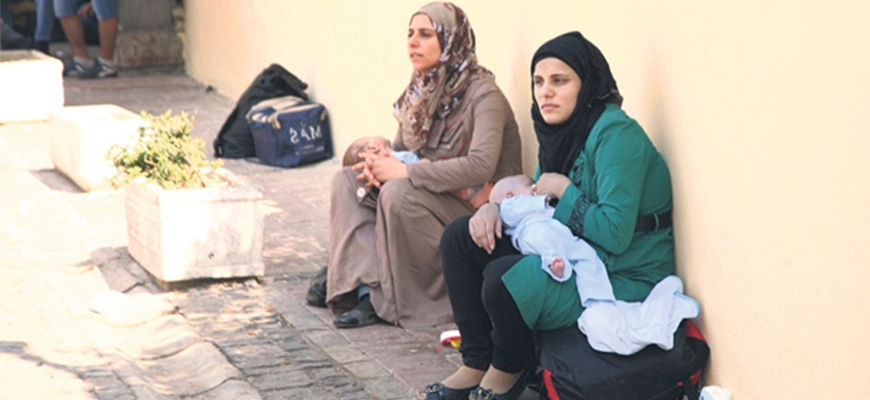
06 Aug 2015
The thousands of Syrian refugees on the street of Izmir, Turkish city, hoping to travel to Europe by the sea and start a new life, which turned Izmir into a hub human smuggling.
In the Basmane neighborhood of İzmir hotels, coffee shops, parks, bus stops, fields and even sidewalks are now the homes of nearly 70,000 Syrian refugees. Most of them have been caught and released over a dozen times by the authorities while trying to reach Greece.
İzmir Governor Mustafa Toprak said in a press conference on Tuesday that the İzmir authorities feel helpless because the refugees cannot be sent back to war-torn Syria and are determined to reach Europe.
In the last month in particular, locations in Basmane such as Hotels Street, Gar Square, Basmane Square, the Kültürpark fair center and fields nearby have seen a sharp increase in the number of refugees living in temporary shelters. According to information Today’s Zaman has acquired, Syrians pay $1,000-2,000 per person to people smugglers and wait their turn in İzmir and other Aegean cities such as Aydın, Muğla, Balıkesir and Çanakkale. People smugglers can earn as much as $500,000 per day.
There are more than 2.5 million Syrian refugees in Turkey, with 67,900 registered in İzmir according to Toprak. He said there are also some refugees from countries other than Syria, who are deported to their home countries when caught by the Turkish coast guard. Syrian nationals are taken to refugee centers to be registered and are afterwards released. “As soon as they are released, they start to look for ways to reach Greece and European countries via sea, despite our efforts,” he added.
Sema Pekdaş, the mayor of the Konak district, which includes Basmane, said in another press conference on Tuesday in İzmir that residents can see the fallout of the Syrian civil war in Basmane. “Fleeing from war is a basic human right, and we should help the refugees. Unfortunately, the Turkish authorities do not fulfill that duty and leave the refugees alone with their fate,” she said.
In June, the European Union urged all its members to swiftly endorse a plan to relocate refugees arriving by sea to Europe from Turkey and Libya. The numbers of such refugees are expected to grow further during the remainder of the traditional June-to-September high season for water crossings.
According to a recent report by the United Nations High Commissioner for Refugees (UNHCR), nearly 44,000 Syrians arrived in the EU in July alone, the largest group of refugees arriving in Europe

 عربي
عربي